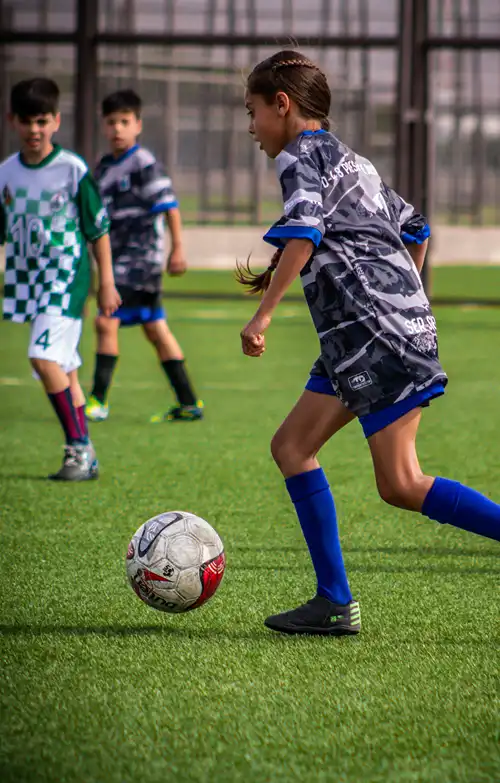Choosing a Career Built Around Teaching and Learning
Have you ever caught yourself explaining something to a friend and thought, “Wait, I’m actually good at this”? That instinct is to break things down, make them clear, and help someone else get it. This is often the seed of a teaching career.
In a time that’s pivoted hard into remote everything and digital overload, teaching remains one of the few professions still rooted in human connection. Today, we will share how to approach a career focused on teaching and learning, and what it actually takes to build one that lasts.
Why This Path Still Matters
It’s not exactly breaking news that the U.S. education system has been under strain. Budget cuts, staffing shortages, and culture-war-driven policy shifts have made national headlines. But under that noise, a quieter reality remains: education still draws people who want to shape how others grow. Whether in classrooms, training centers, or digital platforms, teaching is still how ideas transfer from one generation to the next.
At the same time, education has become broader than just K-12 or college lectures. Instructional roles exist in healthcare, tech, retail, nonprofits, and corporate settings. People are hired every day to train new employees, run workshops, or design learning tools. And this expansion means that building a career around teaching doesn’t always require standing in front of a blackboard.
Some routes still follow traditional paths, with licenses, state exams, and classroom placements. Others go through professional education programs that train people to teach in adult learning settings, corporate environments, or digital classrooms. These programs help develop practical teaching tools. These include lesson design, assessment strategy, and group facilitation, without locking students into public school systems.
That flexibility matters, especially now. With Gen Z entering the workforce during a time of economic uncertainty and post-pandemic recalibration, many are eyeing careers that offer both purpose and adaptability. Teaching, when done right, delivers both.
What a Career in Teaching Actually Looks Like
Forget the cliché of the teacher writing on a chalkboard while students sit in neat rows. That picture hasn’t matched reality in decades. In practice, teaching involves juggling objectives, managing personalities, and constantly adjusting to who’s in front of you. You’re not just conveying facts; you’re shaping how people think.
In formal education, a teaching career can start with an undergraduate degree in education or a specific subject, followed by certification if public school teaching is the goal. For others, it begins with a background in another field, such as science, art, and business, and shifts into education through graduate school or licensing programs. Increasingly, people enter the field later in life, bringing years of real-world experience into the classroom or training environment.

But one constant is learning how to engage different types of minds. A group of third graders doesn’t respond the same way a team of new hires does, and adjusting your style matters. Teaching means reading the room, adapting fast, and figuring out how to make the material stick.
In non-traditional education settings, such as corporate training or instructional design, teachers often go by different names: facilitators, learning consultants, content developers. The tools may change (fewer textbooks, more slide decks), but the challenge remains the same: how do you make someone understand something they didn’t know yesterday?
Trends Driving Change in the Field
One of the biggest shifts reshaping education careers is tech. Platforms like Zoom, Google Classroom, and Canvas have changed how people teach and learn, even in jobs that used to rely on physical presence. A hybrid skill set that is comfortable in both live and digital instruction is now essential, not optional.
Meanwhile, public discourse around education has become more polarized. Curriculum choices, library books, and even classroom language have been politicized in ways that impact how and where teachers work. But rather than driving people away from the field, for some, these tensions have become motivation. They want to be in the room, shaping how the next generation thinks critically.
Another trend: burnout. It’s real, and the stats back it up. Many leave the classroom within the first five years, worn down by large class sizes, low pay, or lack of support. This is where the flexibility of the modern education career can matter. If one environment becomes unsustainable, the skills developed, like communication, organization, adaptability, travel well into other roles.
Education also remains one of the few fields where mentorship is built into the job. Whether formally or informally, those entering the field are rarely doing it alone. Veteran teachers, coordinators, and department leaders usually play a role in shaping new educators. It creates a strong sense of continuity, even as the work itself keeps evolving.
How to Succeed Long-Term
The people who stay in teaching and grow tend to share a few things in common. They’re curious, not just about their subject but about how people learn. They experiment, tweak, and don’t panic when a lesson flops. And maybe most importantly, they separate their ego from the outcome. If a student doesn’t get it, it’s not a personal failure. It’s a signal to try a different angle.
Staying current also helps. That doesn’t mean chasing every new app or teaching trend, but being aware of how tools and expectations change over time. Whether you’re running a classroom, leading a workshop, or creating online modules, keeping things relevant matters.
Community is another key. Isolated teachers burn out faster. Those who build support systems last longer and adapt better. This is done through coworkers, online groups and professional networks. Teaching is emotional work and people who have a place to process it do better.
And don’t overlook the importance of boundaries. There’s always more work that could be done: lessons to improve, materials to revise, emails to answer. But teaching isn’t sustainable without a line between professional commitment and personal time.
Lastly, success often comes from clarity. What kind of teaching matters to you? Who do you want to reach? What do you want them to walk away with? Careers drift when those questions go unanswered. But when they’re clear, decisions about where to work, how to teach, and what to prioritize fall into place faster.
A Job That Still Feels Real
When so many jobs feel disconnected from tangible results (endless meetings, vague KPIs, or chasing engagement metrics) teaching stands out as something you can see working in real time. A confused face becomes an “oh, I get it” moment. A kid who struggled last month is asking sharper questions today. That kind of change doesn’t always happen fast, but when it does, it’s direct. Real. Visible.
That’s what keeps a lot of people in the game.
Choosing a career in teaching and learning isn’t about idealism or chasing a perfect classroom scenario. It’s about building work around the idea that people can grow and that you can help them do it. Whether it’s in schools, training rooms, or behind a screen, the goal is the same: make someone better at something than they were before. The work is hard, sometimes messy, often underappreciated. But for many, it still beats anything else.









